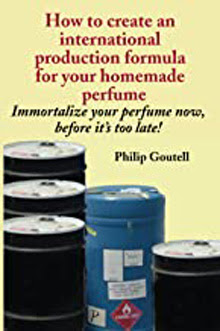(This article continues a series started with "Conduct Some Market Research" )
How much will it cost you to sell your perfume? How much money will you need to make sales? Good questions.
On the one side you have many eyes in the sky perfume creators who believe their perfume is so great that word of mouth alone will make the necessary sales. No promotional money required.
On the other side you have the reality that it could be that no amount of money spent on advertising will sell a single bottle of your perfume. (The more you don't believe this, the more likely it will happen to you!)
We generally go into advertising with a budget. The budget falls into two parts -- the initial test and the rollout. The test is conducted on the smallest practical scale, to see what the odds of success will be. If you are careful, and if you test on the smallest practical scale possible (yet statistically significant, but this is another issue), if you get crunched in your first promotion, you'll still be financially alive and able to try again.
Unfortunately the first time out can be a time of learning lessons and if you put all your money into that first promotion, you'll have no money left to exploit the knowledge you have gained. It happens all too often.
One figure to be aware of is your profit potential on each bottle of perfume you're selling. Say the store (retail) price will be $40, the store pays you $20 (your wholesale price) and it costs you $7.50 to produce each bottle. Within these numbers you MUST be able to sell your perfume without spending more than $12.50 a bottle on promotion (and administrative overhead) and even at just $12.50 you will be left with zero profit.
In other words, if a store has 50 bottles of your fragrance, the MOST you can spend to promote the sale of those 50 bottles will be something short of $625. So if your local radio station offers to do a $1,000 campaign for you, that campaign had better sell 80 bottles of your perfume (and it might not)!) because if it doesn't, you are going to lose money. And if the ad fails to make the required sales the first time out, repeating it will only increase your loss.
In truth it's easier to create a perfume than it is to sell it. The more of a personal following you have, the more you pave the way for perfume sales. But to go out cold, with nothing but what you consider a good perfume, is a very tough, close to impossible proposition.
Build Demand!
The time to build demand is, of course, BEFORE you release your perfume. Then there can be some first day excitement, some first week sales. But how, you ask, do you build demand? This is a question you need to ask -- and answer -- before you begin to spend money creating a perfume.
Don't be naive. Look at all the perfumes on the market. You don't think they got there just because they were good perfumes -- and yours will be just as good (or even better!)?
But those perfumes got there because the marketer had a following -- either as an entertainer (Taylor Swift, Beyonce), or as a fashion designer (Ralph Lauren, Calvin Klein), or as a major cosmetics company (Estee Lauder, L'Oreal). And they fought to create their followings.
Perhaps your desire is simply to sell a good fragrance of your own. Fine. But what are you going to do to draw people to you to the point where they will march into a store and put down money for your perfume -- or spend money at your website?
Unless you have a cost effective plan to sell your perfume, the more money you pump into your project, the more money you will lose.
Monday, February 11, 2013
Subscribe to:
Post Comments (Atom)


No comments:
Post a Comment